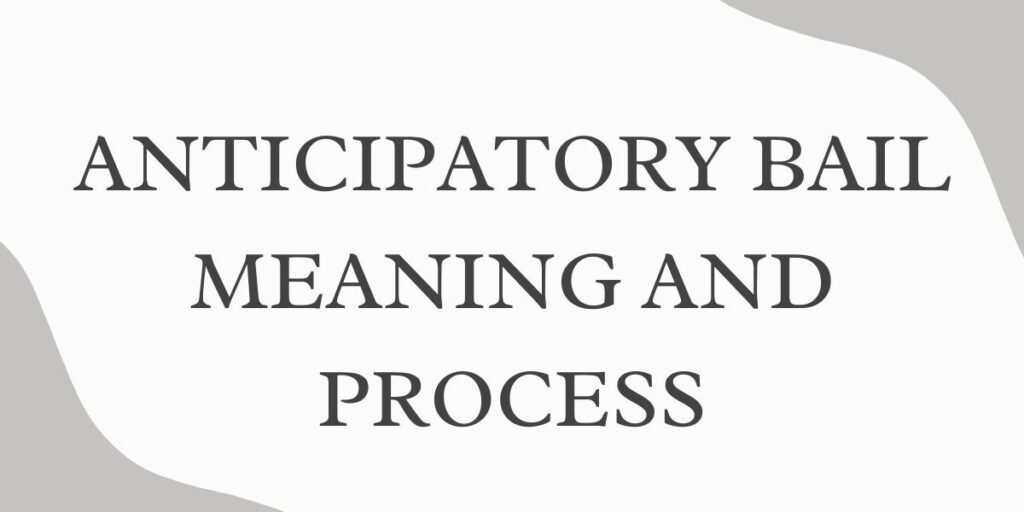If you are someone who has been falsely accused of a crime, the thought of being arrested can be a nightmare. Anticipatory bail is a legal provision that can help you avoid arrest and detention by providing you with pre-arrest bail. This article will delve into the meaning of anticipatory bail and the process involved.
What is Anticipatory Bail?
Anticipatory bail is a legal provision that allows a person to seek bail in anticipation of being arrested. In simpler terms, it is a bail granted before a person is arrested. The purpose of anticipatory bail is to protect the person from harassment, humiliation, and detention before they are even charged with a crime. This provision is granted by the court to prevent the police from arresting a person, as well as to ensure that the person is not taken into custody unnecessarily.
Who Can Apply for Anticipatory Bail?
Any person who feels that they may be arrested for a non-bailable offense can apply for anticipatory bail. However, the bail is not automatic, and the person must satisfy certain conditions before it is granted. These conditions include:
- The person must be able to demonstrate that there is a possibility of being arrested for a non-bailable offense.
- The person must show that they have reason to believe that they may be arrested for a non-bailable offense.
- The person must also show that they are not likely to tamper with evidence or interfere with the investigation if they are granted bail.
Also Read: Online Bail Lawyer in India
Process Involved in Obtaining Anticipatory Bail
The process of obtaining anticipatory bail involves the following steps:
Step 1: Filing an Application
The first step in obtaining anticipatory bail is to file an application with the appropriate court. The application must include details such as the name of the person seeking bail, the grounds for seeking bail, and the nature of the offense that the person is accused of committing.
Step 2: Hearing
After the application has been filed, the court will fix a hearing date. During the hearing, the court will consider the application and any objections that the prosecution may raise. The court may also ask the person seeking bail to provide further information or evidence to support their application.
Step 3: Granting of Bail
If the court is satisfied that the person seeking bail has made a case for anticipatory bail, it will grant the bail. The court may also attach conditions to the bail, such as requiring the person to report to the police station regularly or surrender their passport.
Also Read: Anticipatory Bail Lawyer online
Conclusion
Anticipatory bail is a legal provision that can help a person avoid arrest and detention. However, obtaining anticipatory bail is not automatic, and the person seeking bail must satisfy certain conditions. The process of obtaining anticipatory bail involves filing an application, attending a hearing, and, if granted, adhering to the conditions of the bail.
FAQs
- Can anticipatory bail be granted for any offense?
- No, anticipatory bail can only be granted for non-bailable offenses.
- Is it necessary to hire a lawyer to apply for anticipatory bail?
- It is not necessary to hire a lawyer, but it is advisable as they can provide legal guidance and help prepare a strong case for bail.
- How long is anticipatory bail valid for?
- Anticipatory bail is valid until the charges are framed against the accused or the trial court cancels it.
- Can the prosecution object to anticipatory bail?
- Yes, the prosecution can object to anticipatory bail during the hearing.
- Can the person seeking anticipatory bail be arrested even after the bail is granted?
- No, the person cannot be arrested if anticipatory bail has been granted.
Also Read: Best Anticipatory Bail Lawyer online





More Stories
How Home Inspectors Help You Avoid Costly Mistakes
How to Keep Your AC in Shape? A Friendly Guide to AC Maintenance in Roseville, CA
Louis Vuitton Wall Art: Elevate Your Space with Iconic Luxury